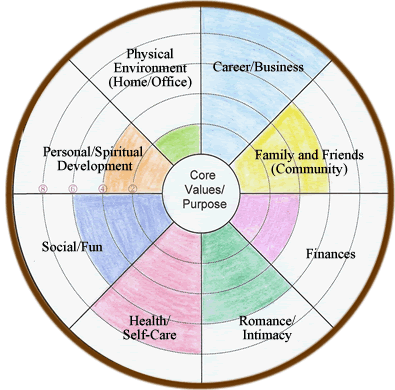As you looking over that cloud of aspirations, which ones really resonate with you? Many leaders, companies, and media sources are discovering the power and value of life and executive coaching. This following list of quotes is taken from International Christian Coaching Association's website,
http://iccaonline.net/2014/01/02/everyone-in-the-media-is-talking-about-coaching/
"Everyone in the Media is talking about Coaching!"
Posted on January 2, 2014 by Dwight
“You will never maximize your potential in any area without COACHING. It is impossible. You may be good. You may even be better than everyone else. But without outside input you will never be as good as you could be.” – Andy Stanley
“If you want to build your business and at the same time have a rewarding personal life, you call a coach.” – Denver Post
“Today’s managers, professionals and entrepreneurs are hiring coaches to help them with time management, a change in career or balancing their work and personal lives.” – Fortune Magazine
“Who, exactly, seeks out a coach? Winners who want even more out of life.” – Chicago Tribune
“Got a nagging feeling that your life could be more fulfilling? Want to change direction but aren’t sure how to do it? Here’s how to jump start your new life today? Hire a personal coach.”- Modern Maturity Magazine
“People who want to stand out at work or face a job crisis increasingly turn to career coaches.” – The Wall Street Journal
“The number of executives hiring personal coaches is rocketing as more and more professionals turn to outside help for advice in how to manage their day, dollars, employee’s, develop better leadership skills and maximize effectiveness.”- London Evening Standard
“Recent studies show business coaching and executive coaching to be the most effective means for achieving sustainable growth, change and development in the individual, group and organization.”
– HR Monthly, (published by The Australian Human Resources Institute (AHRI)
“If you’re thinking of overhauling your career to achieve a more fulfilling life, consider joining the estimated 100,000 Americans who annually enlist the help of a personal coach each year.” - Money Magazine
“Managers that underwent a managerial training program showed an increased productivity of 22.4%. However, a second group was provided coaching following the training process and their productivity increased by 88%. Research does demonstrate that one-on-one executive coaching is of value.”
– Public Personnel Management Journal
“Coaching is an action-oriented partnership that, unlike psychotherapy which delves into patterns of the past, concentrates on where you are today and how you can reach your goals.” – Time Magazine
“Once used to bolster troubled staffers, coaching now is part of the standard leadership development training for elite executives and talented up-and-comers at IBM, Motorola, J.P. Morgan, Chase, and Hewlett Packard. These companies are discreetly giving their best prospects what star athletes have long had: a trusted adviser to help reach their goals.” – CNN.com
“People are looking to coaches as sounding boards and motivators who can offer a fresh perspective on career and life problems – but without the conflicting agendas of a spouse, family member, or even a mentor.” – Fortune Magazine
“How do you define success? For some, obviously, success means money. Others rate emotional happiness as being more important. Yet others rate popularity above all else. Regardless of how you define success, an emerging specialty called ‘success coaching’ (also known as personal and professional coaching) offers the chance to visualize your highest goals and stay on track to achieve them.” – Central New York Business Journal
“For years, business people have used corporate coaches to help their companies work more effectively. Now, an increasing number of individuals are turning to coaches for help in finding balance in their personal lives.” - The Spokane Spokesman Review
“Coaching can certainly help you strengthen your sense of self-worth, focus on your goals – and get there, fast.” - The London Daily Telegraph
“The hottest thing in management is the executive coach – part boss, part consultant, part therapist. Coaches are everywhere these days…Corporate coaches are in such demand that they can charge from $600 to $2,000 a month for three or four 30- to 60-minute phone conversations.” – Fortune Magazine
“Coaching is not about the past or figuring out why and how life got so complicated or overwhelming. It is about moving forward on the things that matter most to you, dissolving barriers and blocks to your own success, and designing a life that you love. A personal coach is better than a best friend.” – Sausalito Networking, Inc.
“Part consultant, part motivational speaker, part therapist, and part rent-a-friend, coaches work with managers, entrepreneurs, and just plain folks, helping them define and achieve their goals – career, personal, or most often, both.” – Newsweek Magazine
“Coaching started in the business world to help stressed out executives cope with their professional and personal lives, and it still thrives in the corporate environment. But, increasingly, individuals are turning to coaches for help with every sort of problem.”- Boston Globe
“Coaching is the number two growth industry right behind IT (Information Technology) jobs, and it’s the number one home based profession.”- Entrepreneur StartUps Magazine
“Coaches aren’t just for sports: They goad you, guide you on the road to success” – Seattle Times
“Coaching simply speeds up a process of change that would most likely occur anyway if an individual had enough time. Without a coaching program that forces a client to focus and make time, people sometimes miss the real issues they need to focus on.” – The Ivy Business Journal
“Part therapist, part consultant, part motivational expert, part professional organizer, part friend, part nag – the personal coach seeks to do for your life what a personal trainer does for your body.” – Minneapolis-St. Paul Star-Tribune
“No matter how strong a person mentally is, without proper mental nourishment he or she will crumble. Personal coaching is one of the best ways to help you get that nourishment and to keep you stay focused.” – BeingLive.com
“In the next few years, coaching will become the norm in the business world.” – Washington Post
“What exactly is a coach? Part personal consultant, part sounding board, part manager. For a surprising number of people, it is now the coach – not the boss – who pushes them to hire, to fire, to fine-tune a sales pitch, to stretch.” – Fortune Magazine
“At a time when companies are downsizing and at a time when boomers are facing retirement, coaches are easing traumatic transitions.” – Long Beach Press-Telegram
“A coach maybe the guardian angel you need to rev up your career.” – Money Magazine
“The goal of coaching is the goal of good management – to make the most of an organization’s valuable resources.”- Harvard Business Review
“Coaching usually refers to a relationship between an individual and a trained professional who work on a set of pre-defined objectives with the aim of achieving particular goals or targets. Coaching protagonists believe that as a result of this relationship, greater results can be achieved and an individual can go on to do things that would otherwise have been impossible.” – Journal of Management Development
“Coaches are everywhere these days. Companies hire them to shore up executives or, in some cases, to ship them out. Division heads hire them as change agents. Workers at all levels of the corporate ladder are taking matters into their own hands and enlisting coaches for guidance on how to improve their performance, boost their profits, and make better decisions about everything from personnel to strategy.” – Fortune Magazine
“The leaders of organizations such as Alcoa, American Red Cross, AT&T, Ford, Northwestern Mutual Life, 3M, UPS, American Standard, the federal governments of the United States and Canada are convinced that coaching works to develop people and increase productivity.” – C2M: The Journal of Management Consulting
“Across corporate America, coaching sessions at many companies have become as routine for executives as budget forecasts and quota meetings.”- Investor’s Business Daily
“To get the most out of yourself you need to tune yourself regularly, just like a musical instrument needs regular tuning. Personal coaching is one of the best ways to help you improve yourself and stay focused.” – BeingLive.com
“The demand for Executive Coaches has skyrocketed over the past 5 years- today’s executive coach is intended to help leaders and potential leaders across the rocky, wild, and challenging road of organizational growth in today’s dynamic and unstable work environment.” – The Society for Industrial and Organizational Psychology
“Asked for a conservative estimate of the monetary payoff from the coaching they got, these managers described an average return of more than $100,000, or about six times what the coaching had cost their companies.” – Fortune Magazine
“I absolutely believe that people unless coached, never reach their maximum capabilities.” – Bob Nardelli, former CEO, Home Depot
“What’s really driving the boom in coaching, is this: as we move from 30 miles an hour to 70 to 120 to 180? As we go from driving straight down the road to making right turns and left turns to abandoning cars and getting on motorcycles? The whole game changes, and a lot of people are trying to keep up, learn how not fall off.” – John Kotter, Harvard Business School
“We’ve done lots of research over the past three years, and we’ve found that leaders who have the best coaching skills have better business results.” – Tanya Clemens, V.P. of Global Executive & Organizational Development at IBM
“I never cease to be amazed at the power of the coaching process to draw out the skills or talent that was previously hidden within an individual, and which invariably finds a way to solve a problem previously thought unsolvable,” – John Russell, Harley-Davidson Europe Ltd.
“People who are coached will be the norm because other people won’t get promoted.” – Jack Welch, former CEO, General Electric
“Coaching is unlocking a person’s potential to maximize their own performance. It is helping them to learn rather than teaching them.” – Timothy Gallwey, author
“Corporations believe that coaching helps keep employees and that the dollar investment in it is far less than the cost of replacing an employee.”- David A. Thomas, Harvard Business School
____________________________________________________________________
I hope this gives you the nudge to try out Family Connections Coaching. Experience growth in your profession and more importantly, in your relationships. It is an invaluable investment that will produce highly significant and satisfying returns, financially yes but more importantly, with the people who mean the most to you to have a life you love!









